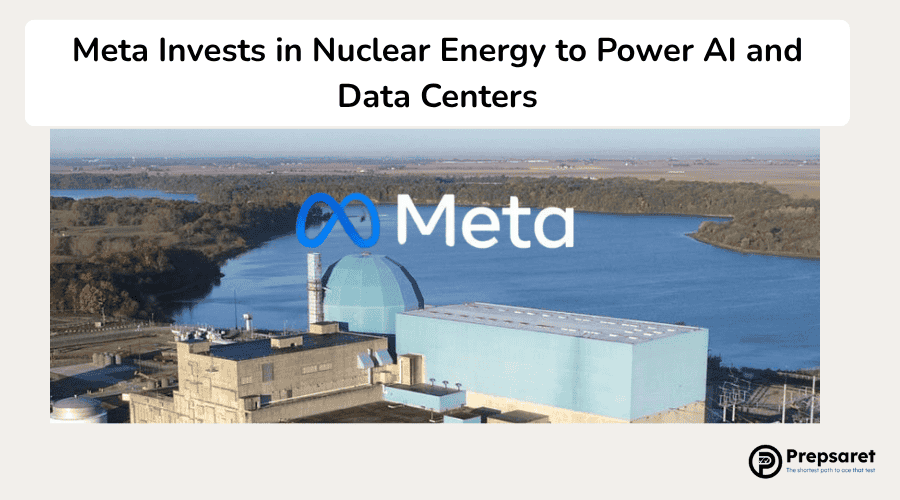Highlights:
- Meta has signed a 20-year deal to secure 1.1 gigawatts of nuclear power from the Clinton Clean Energy Center in Illinois, beginning in 2027.
- The agreement will help meet the rising power demands of Meta’s AI operations and data centers.
- The deal will preserve 1,100 jobs, inject $13.5 million annually into the local economy, and add 30 megawatts to the plant’s output—without requiring continued state subsidies.
- This model reflects a broader trend among tech companies, including Microsoft, Google, and Amazon, turning to nuclear energy to support growing AI demands and climate goals.
Meta Invests in Nuclear Energy to Power AI and Data Centers
In a significant move underscoring the growing energy needs of the tech industry, Meta has finalized a 20-year agreement with Constellation Energy to secure nuclear power from the Clinton Clean Energy Center in Illinois. Beginning in 2027, the deal will deliver 1.1 gigawatts of electricity to support Meta’s expanding data center and artificial intelligence (AI) infrastructure.
The agreement not only ensures the continued operation of the Clinton facility—a plant once at risk of closure—but also paves the way for a 30-megawatt capacity increase.
This expansion, according to estimates by energy expert George Gross, is enough to power a city of 30,000 residents annually. Meta stated that the deal will preserve over 1,100 jobs and contribute $13.5 million annually to the local economy, all without drawing further funds from Illinois’ zero-emission credit program, which expires in 2027.
“This plant is an important piece to strengthening American leadership in energy,” said Urvi Parekh, Meta’s head of global energy, emphasizing the critical role of reliable power in advancing AI technologies.
Echoing this sentiment, Constellation CEO Joe Dominguez noted, “Supporting the relicensing and expansion of existing plants is just as impactful as finding new sources of energy.”
A Broader Tech-Nuclear Trend
Meta’s nuclear partnership is part of a wider shift in the tech sector as energy-intensive AI applications strain existing power grids. Google, Amazon, and Microsoft have all announced similar deals with nuclear providers, including plans to revive dormant facilities or invest in small modular reactors.
While these agreements signal a growing reliance on nuclear energy for tech operations, challenges persist. The U.S. has built only two new large reactors in the past five decades, both of which were delayed and over budget. Despite ambitions to quadruple nuclear output, the current pace of development remains slow.
As federal and state lawmakers introduce new incentives and regulations to support nuclear energy, partnerships like Meta’s may become increasingly common. But whether these investments can scale fast enough to meet soaring AI power demands remains to be seen.
Also in the News:
- Google to Spend $500 Million Over a Decade to Strengthen Compliance After Shareholder Lawsuit
- Apple Will Announce iOS 26 at WWDC as Part of Major Software Rebrand
Preparing for CompTIA exams? Start preparing now at Prepsaret and get access to the exact questions you’ll be tested on in the exam.

